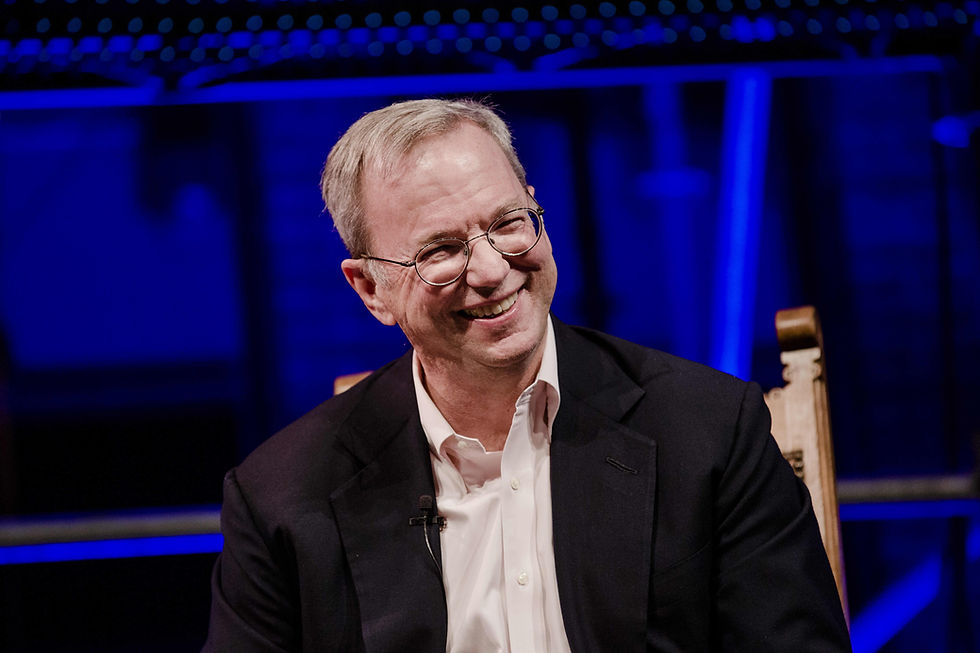Eric Schmidt on Finding True Happiness Beyond Wealth
- Startup Bell
- Dec 15, 2024
- 2 min read
Eric Schmidt, the former CEO of Google and one of the wealthiest people in the world, is renowned for his insights into leadership, technology, and personal fulfillment. While his professional achievements have reshaped the digital landscape, Schmidt’s reflections on happiness and purpose offer valuable lessons for anyone striving to live a meaningful life.

Photo: Getty Images
Money: A Threshold, Not the Destination
Schmidt begins by dismantling the widely held belief that wealth is the ultimate key to happiness. Citing numerous studies, he points out that beyond a certain financial threshold—enough to live comfortably—money ceases to have a significant impact on happiness. Instead, what truly matters are the intangibles: a sense of meaning, purpose, family, and contribution.
For Schmidt, the relentless pursuit of wealth often leads to dissatisfaction because it ignores the deeper human need for connection and impact. This sentiment aligns with research showing that happiness comes from experiences and relationships, not material possessions.
Purpose Over Possessions
“Figure out what you care about and work on that,” Schmidt advises. This principle isn’t just about personal fulfillment—it’s about finding a way to contribute to the world. For Schmidt, his passion lies in leveraging artificial intelligence to tackle pressing societal issues, from education reform to addressing inequality.
His commitment to using his wealth and expertise for the greater good highlights an important point: fulfillment often comes from serving others. Whether it’s through mentoring, philanthropy, or innovative solutions, contributing to something bigger than yourself brings a unique sense of satisfaction.
Happiness Through Service
Schmidt emphasizes that the happiest people are often those who serve others. This idea runs counter to the media’s glorification of powerful, self-centered leaders. While these individuals may be influential, Schmidt argues that true contentment comes from uplifting others.
A real-world example of this can be seen in initiatives like The Giving Pledge, where billionaires commit to donating the majority of their wealth to philanthropic causes. By focusing on education, health, and poverty alleviation, these leaders find joy in driving positive change.
A Call to Action: Make Your Impact
Schmidt’s philosophy is a call to action for everyone, regardless of their financial standing. It’s not about how much money you have; it’s about identifying what matters to you and dedicating your life to it. Whether it’s supporting a local community, pursuing a creative passion, or advocating for a cause, the key is to engage with something meaningful.
As Schmidt says, “It doesn’t matter what you do, it matters that you believe in it.” This belief fuels a sense of purpose, making life richer and more satisfying.
Lessons for Leaders and Dreamers
Eric Schmidt’s reflections challenge us to rethink success. Instead of chasing wealth, he urges us to focus on purpose and impact. By aligning our actions with our values and finding ways to contribute to society, we can lead lives that are not only successful but deeply fulfilling.
In the end, happiness isn’t found in the size of your bank account—it’s in the legacy you leave behind.
Watch Eric Schmidt:




Comments